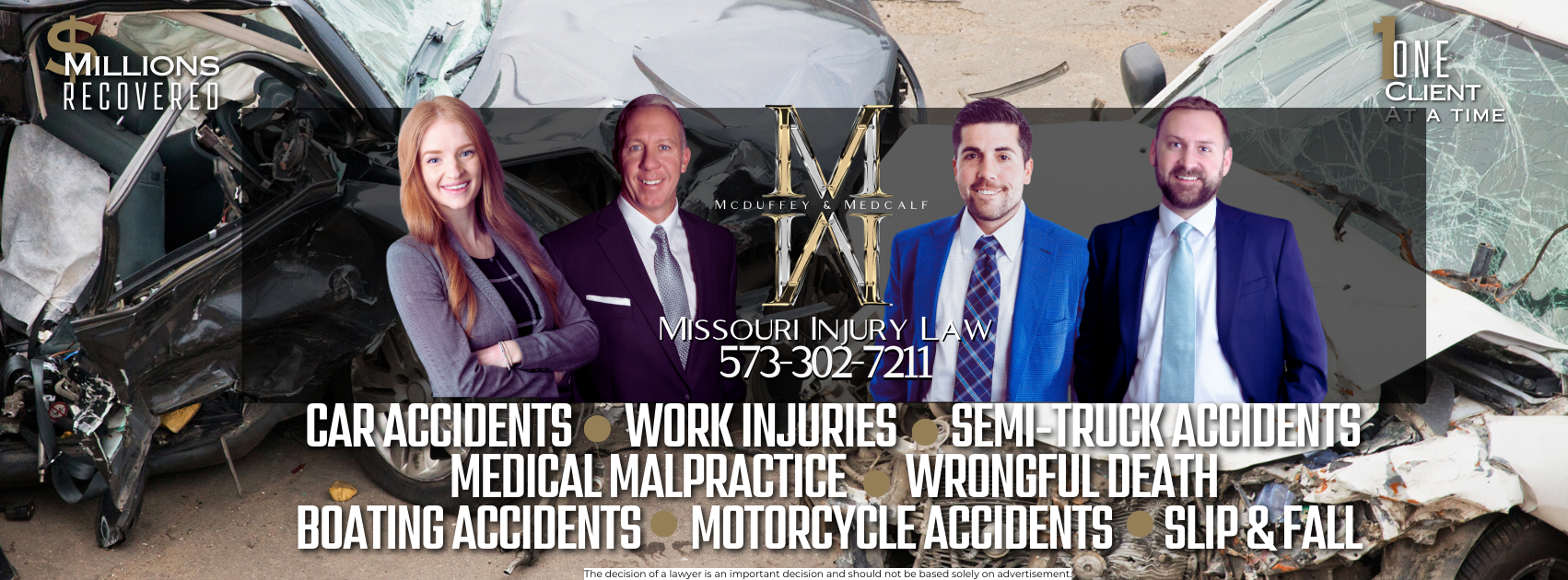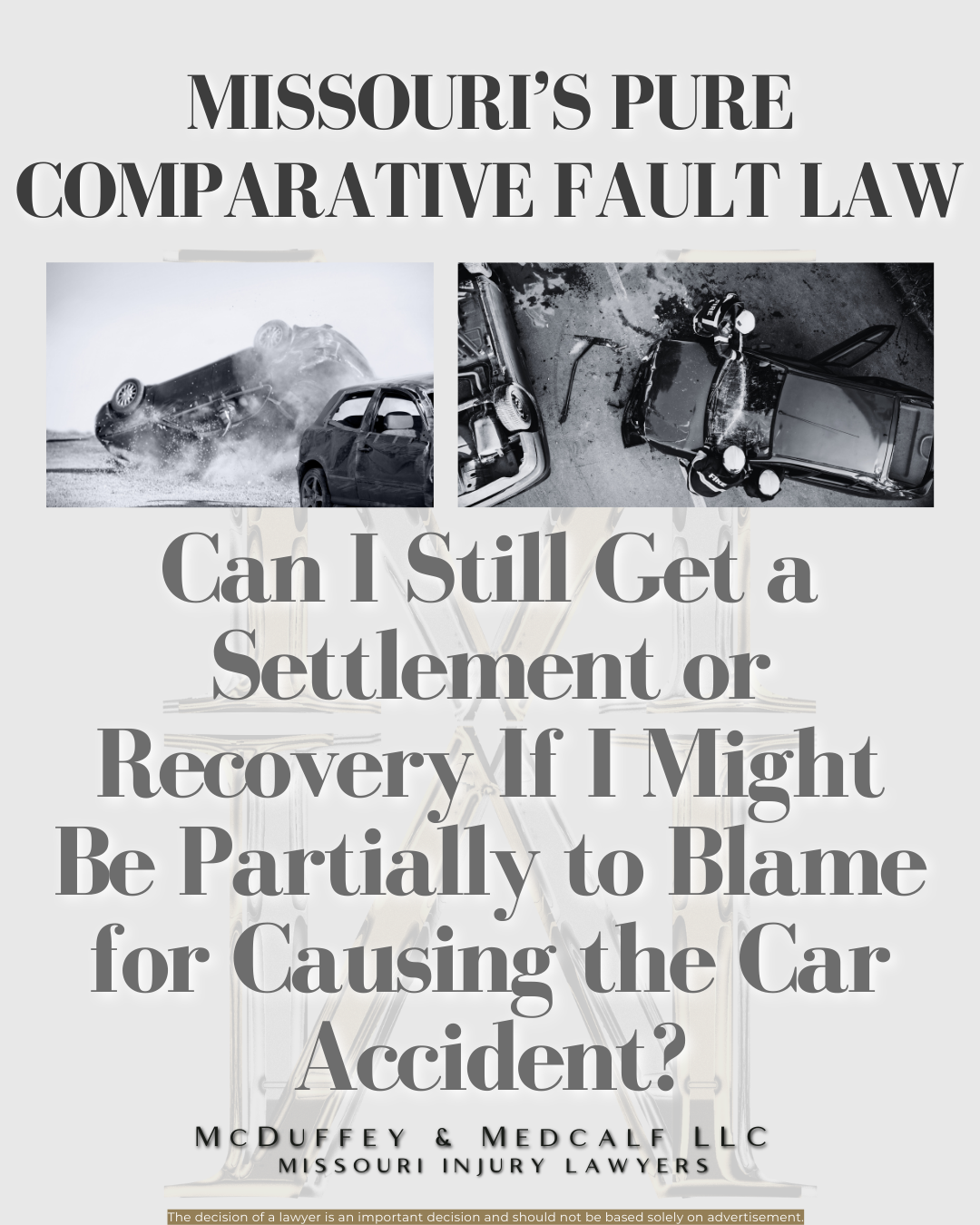Can I Still Get a Settlement or Recovery If I Might Be Partially to Blame for Causing the Car Accident?
First, it is worth noting, if you are 100% at fault for causing a motor vehicle accident, you will not be able to get a recovery from the other involved parties or their insurance companies.
That said, Missouri law is otherwise pretty favorable where you might have contributed to cause the car crash. In order to get a recovery in some other states, you cannot have been 51% at-fault for causing the crash, BUT that is NOT the case in Missouri.
In Missouri, even if you were 99% at fault, but the other party involved was 1% at fault; you could still get a recovery if you suffered damages. In that instance, if you have $100,000.00 in damages, the effect of your fault would be to water-down your recovery to 1% of $100k, or $1,000.00.
So, where your damages were $100k, but you were 50% at-fault for causing the accident, your recovery would be $50k. If you were 75% at-fault, then your recovery would be $25k if your damages were assessed to be $100k otherwise.
Likewise, if you were 75% at fault, but your damages were assessed to be $500k, your recovery would be $125k.
I give all those different hypotheticals to make clear that the percentage of fault is a determination separate from the damages assessment, but one influences the other after both are separately determined.
At a jury trial, the jurors would be asked to make a determination of each party’s percentage of fault (if any), as well as a determination on the dollars and cents value of each party’sdamages (if any). The kicker is that the jury will not be made expressly aware that the amount of money they assign to your injuries/damages will be watered-down by the percentages of fault they assign. So, a jury might think they have issued you a massive award while not realizing the affect of their assignments of fault.
The majority of Missouri motor vehicle accident cases will notend with a jury trial. But, it is within that same framework that pre-suit and/or pre-trial settlement negotiations can progress even if you were partly or mostly at fault for causing the car accident. In those discussions, the insurance company will often tell you what they determined your percentage of fault to be.
You DO NOT have to agree with the percentage of fault the insurance company tells you they decided you deserve in a given case. In the same way most people would not take the first low-ball offer of money from an insurance company, in most cases, you should not blindly agree to whatever percentage of fault they make up for you. The greater your percentage of fault, the less they are then going to have to pay you. So, why just take their word for it?
Even worse, it might be that the insurance companies will use your acknowledgment of some fault to sidestep assessing your damages and paying you anything at all. Most people involved and injured in car accidents in Missouri have no reason to know better. You being somewhat at-fault does NOT automatically equate to mean no recovery.
Some of the largest cases we at McDuffey & Medcalf, LLC have obtained settlements and recoveries on have been cases where we acknowledged, or the insurance company alleged, our client was partly responsible for causing the car accident. It costs nothing for us to evaluate the facts of your case during a free consultation.
For More information on Personal Injury Law:
How much does it cost to hire an injury attorney?
How do I know if I have a personal injury case?
What should I do if I am in a car accident?

FOR MORE INFORMATION & TO SEE THE LAWYERS AT MCDUFFEY & MEDCALF CAN HELP YOU WITH YOUR PERSONAL INJURY CASE:
CALL 573-302-7211 TO SCHEDULE A FREE CONSULT
EMAIL: br**@*********aw.com
OR SUBMIT YOUR INFORMATION HERE FOR A FREE CASE EVALUATION.








